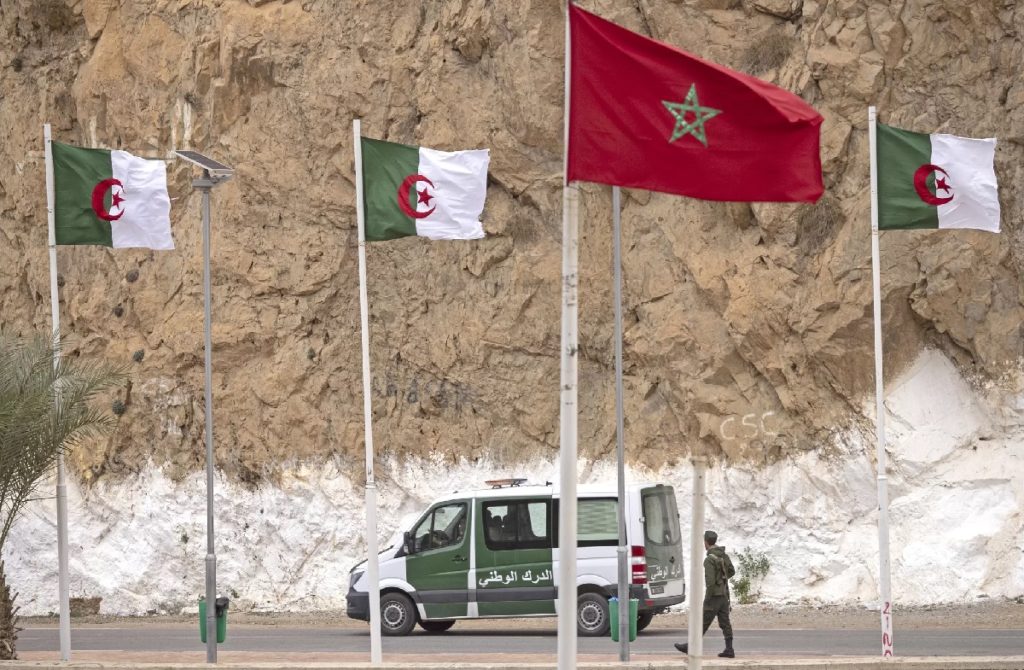Watan-The UN Secretary-General’s envoy to Western Sahara, Staffan de Mistura, highlighted regional indicators he considered highly significant and which could open the door to a new dynamic in the path toward resolving the Western Sahara dispute.
Chief among them is the renewed U.S. support for Morocco’s “autonomy initiative” and the diplomatic activity of France in Algeria. However, he strongly warned against the ongoing tension between Rabat and Algiers and its direct impact on prospects for a solution.
In his official briefing before the United Nations Security Council on Monday, De Mistura paused at the visit of Moroccan Foreign Minister Nasser Bourita to Washington on April 8, during which his American counterpart, Marco Rubio, reaffirmed U.S. support for the autonomy proposal, describing it as “serious” and emphasizing that any solution must be “mutually agreed upon,” with the U.S. administration committed to active engagement to facilitate a final agreement.

UN Envoy Links Regional Stability to Algeria–Morocco Rapprochement
The briefing, the details of which were revealed today, also referred to the visit of French Foreign Minister Stéphane Barroux to Algeria on April 6. This visit followed a phone call between President Abdelmadjid Tebboune and his French counterpart Emmanuel Macron. Although the visit did not directly address the Western Sahara file, the UN envoy viewed it as an indicator of growing diplomatic interest by major powers in the region’s stability.
However, this international engagement, according to De Mistura, does not obscure the significant challenges hindering real progress—foremost among them being the deep crisis between Algeria and Morocco. He noted that bilateral relations have seen no notable improvement and have instead drifted toward greater tension amid a lack of communication channels, continued border closures, and increasing military spending on both sides.
He added: “Improved Algerian–Moroccan relations are a necessary condition to avoid the risk of regional conflict, given the current tensions. This is closely tied to the political and security environment the UN is trying to foster in order to advance the settlement process.”
De Mistura Outlines U.S. Signals and Urges Action Ahead of Key UN Milestone
In his analysis of recent U.S. messaging, De Mistura pointed out three main signals: first, that Morocco’s autonomy initiative needs further elaboration to clarify the scope of powers to be granted to the autonomous entity. The second message stressed the importance of genuine negotiations between the parties, requiring a reliable mechanism for self-determination. The third—and most important, in his view—is the United States’ intention to be directly involved in pushing for a resolution, which could provide the UN with a supportive and effective role in the process.
The UN envoy noted that he had carried out field visits to Rabat, Tindouf, Algiers, and Nouakchott, meeting with various stakeholders involved in the dispute. He confirmed that all parties remain firmly committed to their known positions, while Mauritania expressed its readiness to support any political progress with a spirit of “positive neutrality.”
De Mistura also drew attention to the deteriorating humanitarian situation in the Sahrawi refugee camps in Tindouf, warning of a possible complete halt to food rations during the upcoming summer unless urgent financial aid is provided, according to the UN Refugee Agency and the World Food Programme.
In closing his briefing, De Mistura reminded the Security Council that 2025 marks fifty years since the Western Sahara issue was placed on the UN’s agenda. He noted that the next three months represent a promising opportunity to build diplomatic momentum, potentially allowing the Security Council meeting in October to be a decisive turning point in this long-standing dispute.
